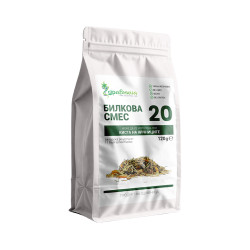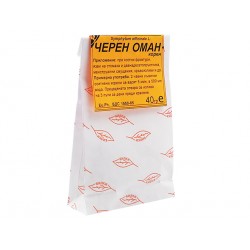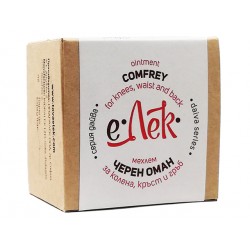Comfrey (Symphytum officinale L.) is a medicinal plant that we can describe as one of the best and indispensable Bulgarian herbs. Comfrey grows on wet meadows, wet pits and along rivers. The herb was known as a medicine by the ancient Thracians, as well as the Romans.
The leaves are rough and very sharp at the edges.
The perennial root is dark brown to black on the outside and white to yellowish on the inside. It is the thickness of a thumb, and is cut very slimy, downright oily to the touch. Interestingly, its roots are dug in late summer to autumn. The tubers of 2-3 year old plants are used. Experienced herbalists collect only 1/3 of the deopists so as not to completely destroy the herb.
Therapeutic action and application:
Comfrey stimulates cell growth, accelerates healing processes in tissues, has anti-inflammatory effects, has hypotensive activity.
It is used to treat difficult to heal wounds, gastritis and ulcers of the stomach and duodenum, inflammation of the bones, injuries and bleeding.
In Bulgarian folk medicine, the roots of Comfrey are used for cough, laryngitis, bronchitis, tuberculosis in the intestines, nosebleeds, vomiting of blood, prolonged menstruation, softening of the bones, colitis.
Folk recipes:
Compresses:
10 g of the roots of the herb are poured with 1 tea cup of hot water. Boil for 10 minutes. The resulting mixture is used to make compresses, which are applied to the affected area.
Compresses with comfrey have a beneficial effect on gout, rheumatism, varicose veins, sprains, for baths for skin rashes and burns, sores in the mouth, for gargling for sore throats.
A paste from the roots of the herb can also be used to make a compress. Well dried roots of the herb are ground and poured a glass of hot water. Add a few drops of sunflower oil. Stir until you get a paste. The resulting mixture is placed on a linen cloth and placed on the affected area. Warm compresses of paste from the roots of the herb help with varicose veins, rheumatic muscle thickenings, gouty growths, tumors, back pain.
Tea:
Two teaspoons of the herb are soaked for 24 hours in 1/4 liter of cold water. The resulting mixture was slightly warmed and filtered. The finished tea is drunk at once.
Wine:
From 2 to 5 fresh and washed roots are cut into small pieces and soaked for 5-6 weeks in pure white wine. This is an excellent remedy for lung diseases.






